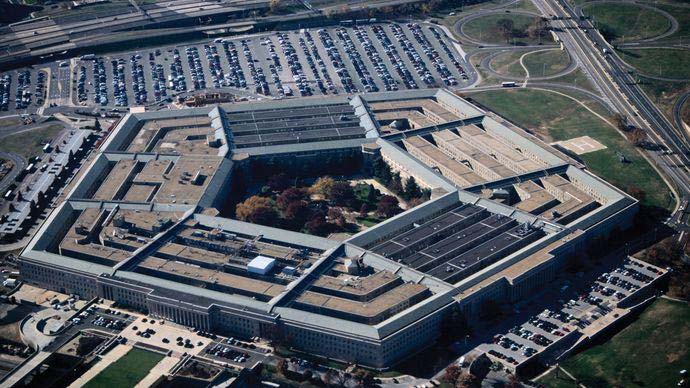The Pentagon says it will require credentialed journalists at the military headquarters to sign a pledge to refrain from reporting information that has not been authorized for release, including unclassified information.
Under a 17-page memo distributed on Sept. 26, journalists who don’t abide by the policy risk losing credentials that provide access to the Pentagon.
“Information must be approved for public release by an appropriate authorizing official before it is released, even if it is unclassified,” the directive states. The signature form includes an array of security requirements for credentialed media at the Pentagon.
These restrictions are added onto other recent changes in policy made by President Donald Trump’s administration. Earlier this year, the Pentagon also removed many news organizations while imposing a series of restrictions on the press, the largest of which bans reporters from entering a large portion of the Pentagon that they previously had access to without a government escort.
Advocates for press freedoms denounced the non-disclosure requirement as an assault on independent journalism. The new Pentagon restrictions arrive as Trump expands threats, lawsuits and government pressure as he remakes the American media landscape.
“If the news about our military must first be approved by the government, then the public is no longer getting independent reporting. It is getting only what officials want them to see,” said National Press Club President Mike Balsamo, “That should alarm every American.”
The Society of Professional Journalists also objected to the Pentagon’s move, calling it “alarming,” and stating, “This policy reeks of prior restraint — the most egregious violation of press freedom under the First Amendment — and is a dangerous step toward government censorship. Attempts to silence the press under the guise of “security” are part of a disturbing pattern of growing government hostility toward transparency and democratic norms.”
These restrictions began after The Pentagon was embarrassed earlier this year when the Editor-in-Chief of The Atlantic, Jeffrey Goldberg, was inadvertently included in a group chat on the Signal messaging app where the Defense Secretary discussed plans for upcoming military strikes in Yemen. Trump’s former national security advisor, Mike Waltz, took responsibility for Goldberg being included and was shifted to another job.
The Defense Department was also embarrassed by a leak to The New York Times which detailed that billionaire Elon Musk was to get a briefing on the U.S. military’s plans in case a war broke out with China. That briefing never took place on Trump’s orders, and Secretary of Defense Pete Hegseth suspended two Pentagon officials as part of an investigation into how that news got out.




